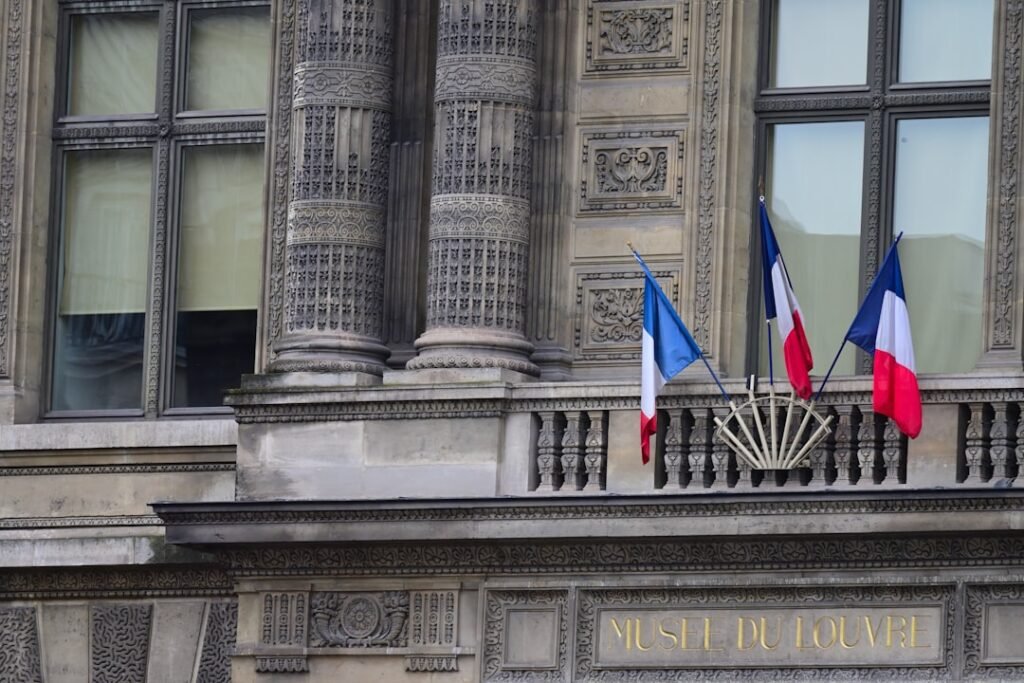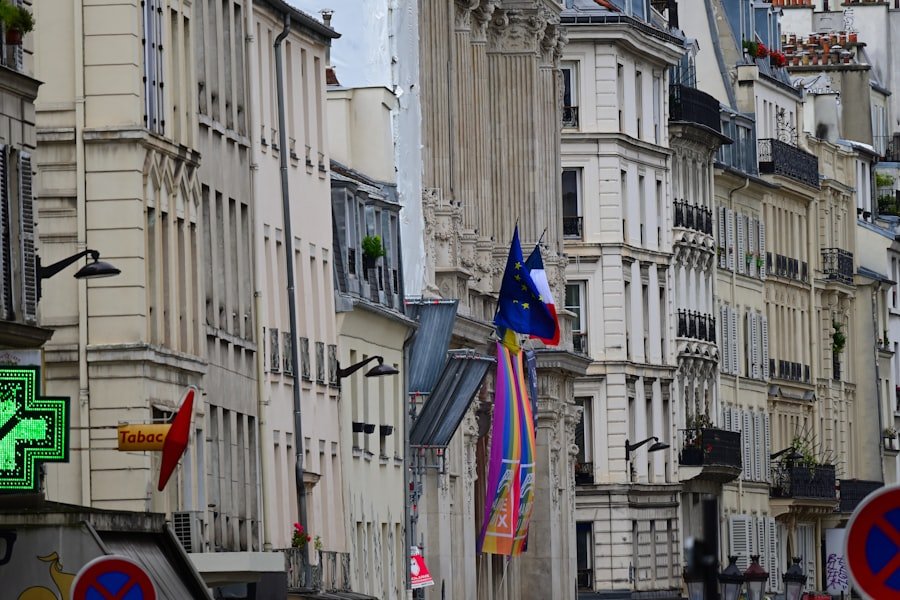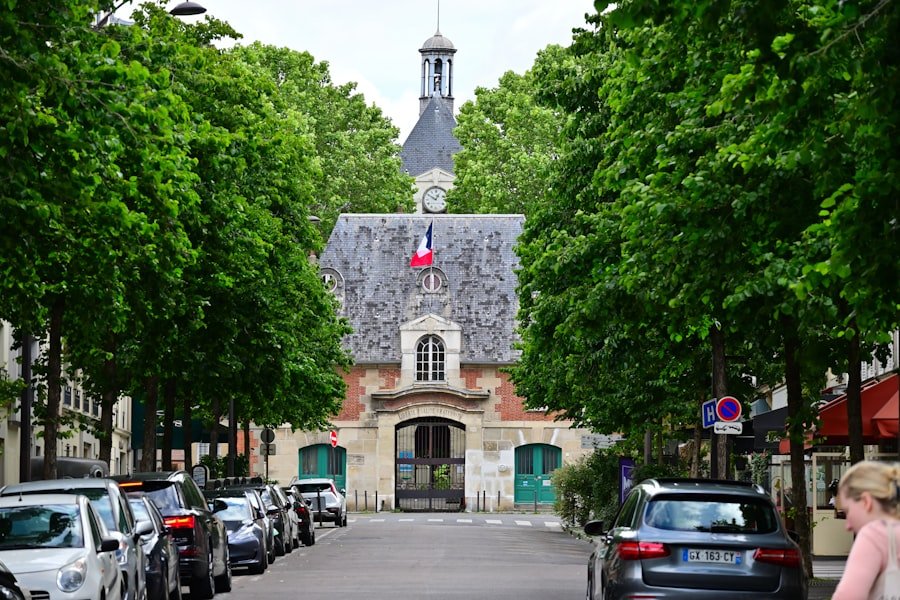

The Art of Translation: French-Norwegian Workshops in the Capital
Translation workshops have emerged as vital platforms for fostering linguistic skills and cultural understanding. These workshops provide an immersive environment where participants can hone their translation abilities, engage with diverse texts, and explore the intricacies of language. At the NLS Norwegian Language School in Oslo, the focus on French courses has become particularly significant, given the rich cultural and historical ties between France and Norway.
The workshops not only serve as a training ground for aspiring translators but also as a space for collaboration and exchange among language enthusiasts. In these workshops, participants are encouraged to delve into various genres of text, from literature to technical documents, allowing them to develop a well-rounded skill set. The structured yet flexible format of the workshops enables learners to receive constructive feedback from experienced instructors and peers alike.
This collaborative atmosphere fosters a sense of community, where individuals can share their insights and experiences, ultimately enriching the learning process. As the demand for bilingual professionals continues to rise, the importance of translation workshops cannot be overstated. Ready to say Bonjour to fluency? Your French journey starts at NLS Norwegian Language School. Enroll in a French class today!
Table of Contents
ToggleSummary
- Translation workshops provide a platform for language enthusiasts to hone their skills and exchange ideas.
- French-Norwegian translation plays a crucial role in facilitating communication and understanding between the two cultures.
- Language serves as a gateway to understanding and appreciating different cultures, fostering mutual respect and collaboration.
- Translators employ various techniques to overcome challenges such as idiomatic expressions and cultural nuances.
- Preserving the original message in translation requires a deep understanding of both the source and target languages.
Importance of French-Norwegian Translation
The significance of French-Norwegian translation extends beyond mere linguistic conversion; it plays a crucial role in facilitating communication between two distinct cultures. With Norway’s increasing engagement in international affairs and its growing ties with French-speaking countries, the need for proficient translators has never been more pressing. French is not only one of the most widely spoken languages in the world but also a key language in diplomacy, art, and science.
Thus, mastering French-Norwegian translation opens doors to numerous opportunities in various fields. Moreover, translation serves as a bridge that connects people from different backgrounds, allowing them to share ideas, stories, and experiences. In a globalised world, understanding and appreciating cultural nuances is essential for fostering mutual respect and collaboration.
By promoting French-Norwegian translation, the NLS Norwegian Language School contributes to a greater understanding of both cultures, enabling individuals to engage meaningfully with one another. This cultural exchange enriches the lives of those involved and strengthens the bonds between France and Norway.
The Role of Language in Cultural Exchange

Language is a powerful tool for cultural exchange, acting as a conduit through which ideas and traditions flow. It is through language that we express our identities, share our histories, and connect with others on a deeper level. In the context of French-Norwegian translation, language becomes a means of exploring the rich tapestry of both cultures.
The NLS Norwegian Language School recognises this importance and integrates cultural elements into its French courses, ensuring that students not only learn the language but also gain insights into the customs and values that shape it. Cultural exchange through language fosters empathy and understanding, allowing individuals to appreciate perspectives that may differ from their own. By engaging with French literature, cinema, and art during translation workshops, participants gain a more profound appreciation for the nuances of French culture.
Similarly, sharing Norwegian stories and traditions with French speakers creates a reciprocal relationship that enriches both communities. This exchange ultimately cultivates a sense of global citizenship, where individuals recognise their interconnectedness and work towards a more inclusive world.
Techniques and Challenges of Translation
Translation is an intricate process that requires not only linguistic proficiency but also an understanding of context, tone, and style. Participants in translation workshops at the NLS Norwegian Language School are introduced to various techniques that enhance their skills. These may include strategies for dealing with idiomatic expressions, maintaining consistency in terminology, and adapting content for different audiences.
By practising these techniques in a supportive environment, learners can develop their unique approaches to translation. However, the challenges of translation are manifold. One of the most significant hurdles is capturing the essence of the original text while ensuring that it resonates with the target audience.
This often involves navigating cultural references that may not have direct equivalents in the other language. Additionally, translators must be mindful of maintaining the author’s voice and intent while making necessary adjustments for clarity and coherence. The workshops at NLS provide participants with opportunities to tackle these challenges head-on, equipping them with the skills needed to produce high-quality translations.
The Art of Preserving the Original Message
At the heart of translation lies the delicate balance between fidelity to the original message and adaptation for the target audience. Preserving the essence of a text while making it accessible is an art form that requires both skill and sensitivity. In translation workshops at NLS, participants learn how to navigate this balance by engaging with various texts and discussing their approaches to preserving meaning.
This process often involves critical thinking and creativity as translators strive to convey not just words but emotions and ideas. The art of preserving the original message also extends to understanding the cultural context in which a text was created. Translators must consider how cultural nuances influence meaning and how these can be effectively communicated in another language.
By exploring these aspects during workshops, participants gain valuable insights into the complexities of translation. This understanding ultimately enhances their ability to produce translations that resonate with readers while remaining true to the source material.
The Nuances of French and Norwegian Languages

The French and Norwegian languages each possess unique characteristics that present both opportunities and challenges for translators. French is known for its rich vocabulary and intricate grammatical structures, while Norwegian offers a more straightforward syntax but can be equally nuanced in its expressions. Understanding these differences is crucial for effective translation, as it allows translators to navigate potential pitfalls and make informed choices about word selection and phrasing.
In translation workshops at NLS, participants engage in exercises that highlight these nuances, enabling them to develop a keen awareness of how language shapes meaning. For instance, exploring idiomatic expressions in both languages can reveal cultural insights that inform translation choices. By immersing themselves in the subtleties of French and Norwegian languages, learners become more adept at recognising when literal translations may fall short and when creative adaptations are necessary.
The Impact of Translation on Literature and Art
Translation has long been a catalyst for the dissemination of literature and art across cultures. Through translation, works that were once confined to their original languages can reach new audiences, enriching the global literary landscape. The NLS Norwegian Language School acknowledges this impact by incorporating literary translation into its French courses, allowing participants to explore renowned French authors while honing their skills.
The influence of translation extends beyond literature; it also plays a significant role in the world of art. Many artistic movements have been shaped by cross-cultural exchanges facilitated by translation. For instance, French Impressionism found its way into Norwegian art through translated texts that introduced artists to new ideas and techniques.
By studying these connections during workshops, participants gain a deeper appreciation for how translation has shaped artistic expression throughout history.
Bridging the Gap: Connecting French and Norwegian Communities
Translation serves as a vital link between French and Norwegian communities, fostering dialogue and collaboration across borders. As globalisation continues to blur geographical boundaries, the need for effective communication between cultures becomes increasingly important. The NLS Norwegian Language School plays a pivotal role in bridging this gap by offering French courses that equip individuals with the skills needed to engage with both communities.
Through translation workshops, participants not only develop their linguistic abilities but also cultivate relationships with fellow learners from diverse backgrounds. This sense of community encourages collaboration on projects that promote cultural exchange, such as joint literary events or art exhibitions featuring works from both cultures. By connecting individuals through language, NLS contributes to a more interconnected world where ideas can flow freely across borders.
The Evolution of Translation in the Digital Age
The digital age has transformed many aspects of our lives, including how we approach translation. With advancements in technology, translators now have access to an array of tools that can enhance their work. From online dictionaries to machine translation software, these resources can streamline the translation process and improve efficiency.
However, they also present new challenges as translators must navigate issues related to accuracy and context. At NLS, participants are encouraged to embrace technology while recognising its limitations. Workshops often include discussions on how digital tools can complement traditional translation methods without replacing the human touch that is essential for capturing nuance and emotion.
By exploring this evolving landscape during their training, learners are better prepared to adapt to changes in the field while maintaining high standards in their work.
The Future of French-Norwegian Translation Workshops
As globalisation continues to shape our world, the future of French-Norwegian translation workshops looks promising. The demand for skilled translators is expected to grow as businesses expand their reach into new markets and cultural exchanges become more prevalent. The NLS Norwegian Language School is well-positioned to meet this demand by continually refining its curriculum and offering innovative training methods.
Looking ahead, there is potential for increased collaboration between educational institutions in France and Norway, further enriching the learning experience for participants. By fostering partnerships that promote cross-cultural dialogue and exchange, these workshops can play an even more significant role in shaping future generations of translators who are equipped to navigate an increasingly interconnected world.
Celebrating the Art of Translation
In conclusion, translation is an art form that transcends mere words; it embodies cultural exchange, understanding, and connection between communities. The French courses at NLS Norwegian Language School in Oslo exemplify this spirit by providing participants with opportunities to develop their skills while engaging with both languages’ rich cultural heritage. As we celebrate the art of translation, we recognise its power to bridge gaps between cultures and foster meaningful relationships across borders.
Through workshops that emphasise collaboration, creativity, and critical thinking, NLS prepares learners for a future where their skills will be invaluable in promoting dialogue and understanding between French and Norwegian communities. As we look forward to what lies ahead in this field, we honour those who dedicate themselves to mastering this craft—translators who play an essential role in shaping our shared global narrative.
If you want to learn Norwegian, you can register for classes here. We look forward to hearing from you and helping you become fluent in Norwegian.





